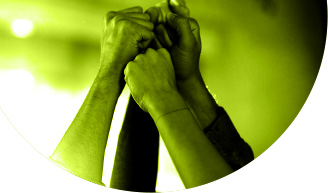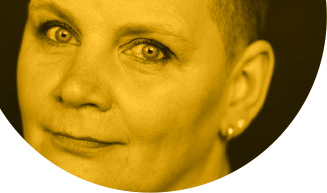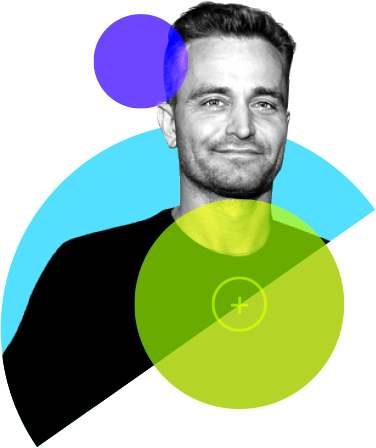
Who is Roel Veltmeijer?
https://www.veltmeijer-group.com/
https://fec-nederland.nl/over-fec-nederland/
https://amsterdamdinnerfoundation.nl/
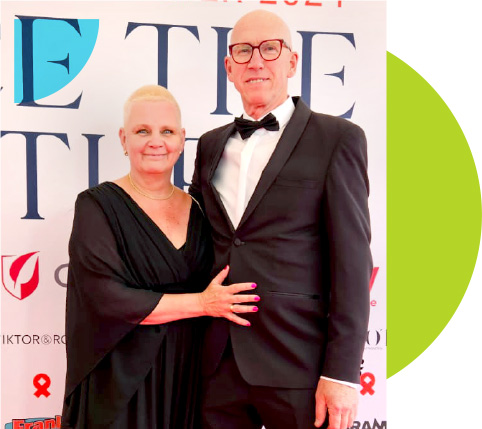
A Personal Conversation
In 2023, Roel invited me and my husband, Willem, to The Amsterdam Dinner, a charity gala where the proceeds benefit HIV initiatives and research.
This evening had such an impact on me that I decided to reserve an entire table for me and my employees in 2024.
Before this evening, I had a personal conversation with Roel, a discussion that went beyond business and career.
2016
What will my business partners think of me?
With only a leaflet in hand, he left the GGD. Although Roel knew that he would not die of HIV, thoughts raced through his mind: “How will my parents and friends react to this news?” “What will my business partners think of me?” “Does this mean the end of my career?”
Roel decided to keep his diagnosis mostly secret. Only his parents and close friends knew he had HIV. Shame and self-stigma³ prevented Roel from daring to speak openly about it.
However, since his diagnosis, Roel regularly attended The Amsterdam Dinner, where he was appointed Chairman in 2022.
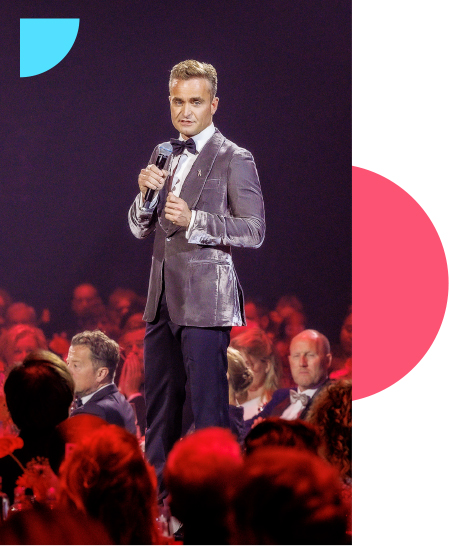
Breaking the Stigma
As Chairman of The Amsterdam Dinner Foundation, Roel decided not to keep his diagnosis a secret any longer. On stage, in front of over 1,500 guests, Roel came out for a second time, this time to reveal that he had HIV.
A courageous decision, accompanied by fear and uncertainty about the reactions from the audience, his close circle, and business partners. A burden was lifted from his shoulders. The reactions were heartwarming and full of support. All those years of keeping his HIV status a secret had been tough and confronting. Now, it was time to be open and take steps to break the stigma surrounding HIV.
Roel decided to step into the spotlight. In the many interviews that followed, he spoke openly about his diagnosis to break the stigma and keep HIV relevant.
HIV is an Epidemic
But AIDS — a later stage of HIV — still causes about 650,000 deaths per year. There are 38.4 million people worldwide living with HIV, and since the start of the epidemic, an estimated 42.3 million people have died from the consequences of HIV.
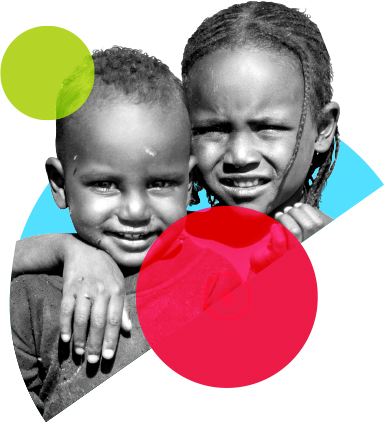
HIV is particularly devastating in Sub-Saharan Africa, where the horror images from the 1980s and 1990s that we know from the West are still daily reality. Children dying prematurely, families torn apart, young people, especially women, who are incurably ill and die in great pain.
The medication and care that we are so accustomed to here are not sufficiently available in these areas. If you take medication, you can no longer transmit HIV to others⁴. Due to the lack of this medication, HIV remains a global epidemic, and that must stop.
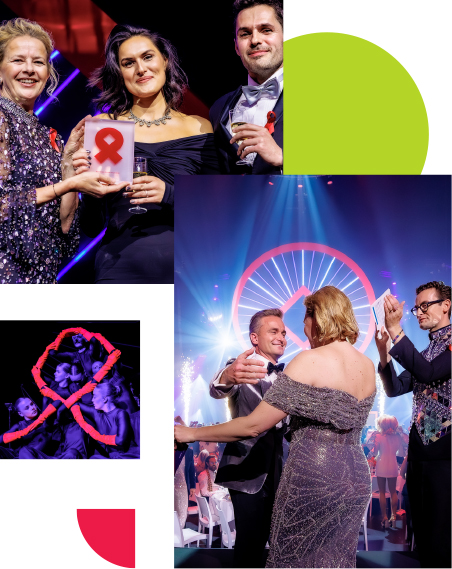
The Amsterdam Dinner
Roel and The Amsterdam Dinner fight for equal treatment, worldwide, for people with HIV. By breaking the stigma, ensuring that important projects around HIV are financially supported, and keeping HIV relevant, we can ensure together that HIV ceases to exist.
It is especially important now that we take steps so the next generation can grow up without HIV. A world without shame and stigma. Where love is celebrated without prejudice. Where HIV is no longer one of the leading causes of death for young people, especially women, worldwide.
Would you like to help? Then reserve a table, or a seat at a table, at the Amsterdam Dinner 2025. Together, we can stop HIV.
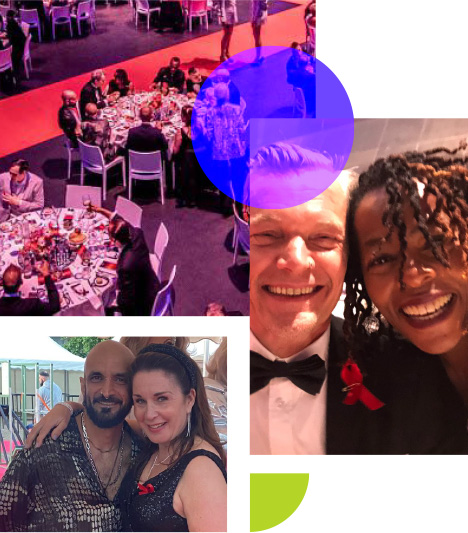
A Significant but Also Beautiful Evening
The Amsterdam Dinner is an important initiative that contributes to a world without HIV. This evening, where many well-known Dutch people are present, is also a beautiful night out. An evening where there is laughter, tears, sharing, and dancing.
I have experienced these evenings as very impactful. For example, I learned that worldwide the majority of people with HIV are heterosexual women. That too many people still die daily from the consequences of HIV, and that HIV can be stopped if everyone receives equal treatment.
For this reason, I decided that the Center for Responsible Gambling would commit itself to fighting HIV. An important goal. The consequences of HIV are too great and pose a threat to public health.
Enough is enough.
Curious About How an Evening at The Amsterdam Dinner Goes?
Watch this beautiful aftermovie.
Many heterosexual men and women who go to the doctor with these complaints are not tested for HIV for this reason. HIV is still often labeled in the Netherlands as a “gay disease.” Yet, 46% of new HIV cases in the Netherlands are among heterosexual men and women. HIV does not discriminate.
This RNA test is not always available. Probably because the symptoms of an acute HIV infection were so clear in Roel's case, the GGD used this test, which then showed that Roel was indeed HIV positive.
However, it appears that the majority of cases worldwide are women, and only a relatively small number of people contract HIV through drug use (via needles and blood-to-blood contact).
Self-stigma, the shame you feel toward yourself, is also high among people with HIV. This makes them reluctant to talk about their HIV status, which negatively affects their overall quality of life.
By keeping the discussion open and talking about HIV as a condition rather than a value judgment, we can remove this shame — exactly what Roel and The Amsterdam Dinner aim to do.
4) U=U or N=N
When someone with HIV receives medication, that person can no longer transmit HIV to others. The medication makes the HIV "sleep" and undetectable in the blood. The viral load (the number of virus particles in the blood) is then so low that the virus can no longer be transmitted to others. This has been proven by the WHO (World Health Organization).
We call this "Undetectable is Untransmittable" (U=U). This means, among other things, that a person with an undetectable HIV infection cannot transmit the virus through sex or that a woman can have a child without passing it on to her fetus.
 Want to know more about HIV?
Want to know more about HIV?
Visit page


